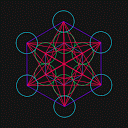Judaism teaches that the world is sustained by three things: – by Torah, by worship and by loving kindness. As people of the book, The Torah is the Law and the basis of everything we believe, as we forge our covenant with Divinity. A basic tenet of Judaism is that we partners and co-creators with Divinity— in a relationship in which we receive God’s blessings if we agree to behave in Godly ways. This means that we not only recite blessings but that our lives are to be blessings, helping to make the world better because we are in it.
Ours is a religion that stresses deed over creed. Aware of our connection with Divinity, our lives become an act of worship. Far more than attending prayer services and reciting the required words, our actions need to show that we understand the imperative for righteous behavior, based on acting and reacting from a sense of loving kindness— with a sense of compassion in all that we do. The counterbalance to compassion is justice.
We live in a world of dualities. In all aspects of our lives, we try to find a place of balance between the two polarities or extremes. Justice is based on the concept that we are all children of one God. It demands that we regard and treat everyone as we wish to be treated because it is the right and moral thing to do. The sage Hillel said: “What is hateful to you do not do to any person. That is the whole Torah. All the rest is commentary.”
Compassion is that innate sense of unconditional love that keeps the universe afloat and our ability to love unconditionally is the way we reflect Divinity in whose image we are created. It is our ability to share the pain of others and to empathize and love them irrespective of where they are on their own spiritual journey. We need compassion and justice in balance. A world only of justice/judgment would be harsh, with laws and ordinances that see the world in terms of black or white; a world of only compassion is without boundaries in which the continuous flow of energy can run us dry. We need to be able express our compassion for others while without allowing the well to run dry. We need to be able to treat ourselves compassionately too.
Hillel continued: “If I am not for myself, who will be for me, If only for myself, what am I and if not know when?” If I am not for myself— if I have no sense of my own worth and value how will any other person see worth within me? There is a difference between selfishness and self-worth. We need to acknowledge our own needs as well as the gifts that we were granted to give back to the world. If however, my concern remains entirely around me and my own needs at the expense of others, I am selfish. And there is no better time to start than now. It is a waste of time regretting what we have not accomplished in the past; if we similarly waste our time thinking about what we can accomplish in the future, we are not living in the present, where our attention needs to be. In a world that is so out of kilter in so many ways, perhaps we can find ways to balance the two forces of compassion and justice in our own lives, and if not now, when?
